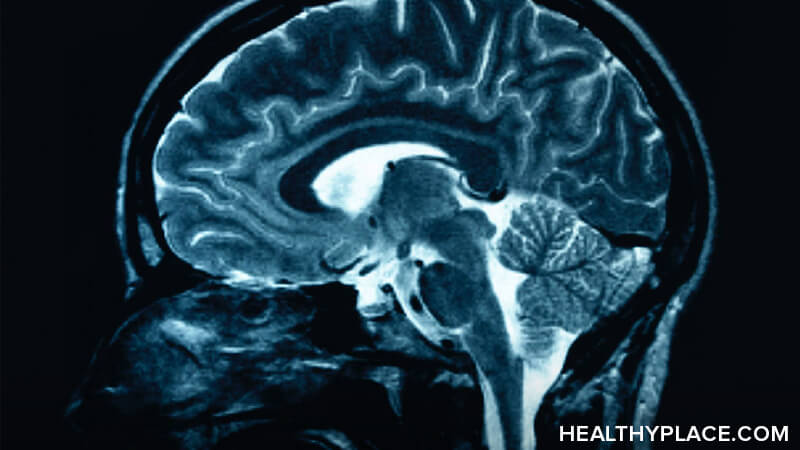
A mother of an ADD child has 19 helpful suggestions for parenting a child with attention deficit disorder (ADD) and coping with the challenges.
A Mother's Point of View
The following is a compilation of personal thoughts and ideas derived from several years experience raising my son, an interesting, delightful, and lovable child, acquired by using common sense, seeking education, and making mistakes in the on-going process of coming to understand attention deficit disorder, my child, and myself.
1. Educate yourself about Attention Deficit Disorder.
The biggest fear for a parent is the fear of the unknown. Parents cannot do what is necessary for their child unless they have done their homework. Educate yourself about what ADD is and about what you can realistically do to help your ADHD child.
2. Work cooperatively with your child's teachers, school administrators, special learning consultants or school boards when necessary.
Ideally, the school and family should work as a team. Request mutually agreed upon contact with teachers on a regular basis to compare how your child is doing both at home and at school and to help each other problem solve when appropriate. Your child can also be involved in this communication. Forms of communication can include brief notes, assignment sheets to be signed at home, telephone calls and prearranged meetings. It is important to identify and resolve problems before they escalate.
3. Educate others and advocate for your child.
Inform the school and teachers about good books or conferences on the subject. Provide articles or books to schools. Don't count on your child's school or schools of education to adequately educate teachers or future teachers about ADD. For many teachers, it's a relief to find out from parents what's wrong with their students and to learn alternative approaches (when necessary) that can help these children learn.
4. When first learning about ADD, it can be helpful to talk with parents who have been raising a child diagnosed with ADD for a while.
They can offer the perspective of time and they may not be feeling anxious as a parent whose child is newly diagnosed with ADD.
5. Get acquainted with other parents who have children with ADD.
Either join/form a support group or find a friend with whom you can communicate your concerns. It can feel lonely to be the only one who has a child with ADD.
6. You may not be able to keep your anxieties from your child.
Feelings of anxiety are usually shared by others in your family anyway, including your child. Therefore, it is essential to find a way to acknowledge these feelings, to let your child know that something will be done to help him/her and that someone (an adult) is in control.
7. Allow yourself the time you need to grieve.
With the exception of a parent who has adopted an older child already diagnosed as having ADD, no parent expects their child will have ADD. We grieve the loss of our expectations and fantasy child. Reaching the point of accepting our child's differences and special needs requires going through a process during which it is normal for intense, angry and painful feelings to surface intermittently. Do not be hard on yourself whenever these feelings arise. They may occur many times before acceptance has been reached. Eventually, you will be able to allow yourself the luxury of letting go of these feelings in order to bring acceptance and hope into your life.
8. With information and support, most parents will move through the grief process to acceptance.
However, if this grief reaction persists, it may be helpful to seek professional counseling. Be sure the counselor chosen is knowledgeable about ADD and the grief and loss process.
9. Get rest whenever possible.
These children are physically and emotionally exhausting to raise.
10. Your child needs to have well- balanced parents.
This cannot be accomplished if you focus all of your energies on your child. Involvement in career, hobbies, personal interest, friends, etc. helps one maintain this balance.
11. If you are married, take the time to be alone with your spouse.
When you do get away from the children, don't spend the entire time discussing them!
12. Believe in yourself as a good parent.
You have a child that can be very difficult and challenging to raise. "Don't borrow anxiety from the future or guilt from the past."
13. Inappropriate behavior is just that.
We do not want our children behaving inappropriately because they have ADD. They are capable of learning. It takes more consistent reinforcement. ADD is not a new problem. It just had different names or was not being given any names in the past. Today, we know that utilizing behavior management techniques, medication, counseling, educational modification, or a combination of some of these approaches at appropriate times enables many children with ADD to do very well.
14. In raising children, there are no guarantees for success.
The earlier one is able to identify a child as having ADD and provide positive intervention, the more hopeful one tends to feel. Regardless of the age when ADD is diagnosed, however, it is important to remember that both parents and children try to do the best they can. Even though parents may attempt to provide everything possible to help their child, they cannot control the outcome of his life. It is imperative, however, during the preschool, elementary, and middle school years that parents do everything they can in advocating for school success. This may even be at the criticism of teachers and administrators who insist that a child "take responsibility for their own actions." Children with ADD are characteristically immature and can be permanently damaged by having been allowed to fail. Ultimately, a person has to accept responsibility for himself, but for children with ADD, this may come much later than their same-aged peers.
15. Be positive.
Focus on your child's strengths. Let him know you believe in him, that everyone has strengths and weaknesses and that things can get better for him.
16. Being the sibling of a child with ADD is also a challenging job!
Don't forget that siblings need to get their share of the family's attention, too.
17. Children with ADD have difficult childhoods.
Unless their ADD can be well managed, they face frequent rejection, frustration, and loneliness. Even if ADD is well managed, they still have to compensate for some of the social, emotional and educational problems they experience because of ADD. However, parents and children that work through these problems are ahead of the game. They have the opportunity to develop courage, strength, empathy, and compassion. They have the potential to learn to accept differences in others and to truly appreciate the beauty of those differences. In addition, they are capable of experiencing ongoing dynamic relationships.
18. If you have a supportive religious community, consider yourself truly blessed.
Many parents of children with disabilities, as well as ADD, find that their children are not welcome in many community activities, including their church. You need support and advice about how to deal with difficult situations from others who have shared similar experiences.
19. Put things in perspective.
Sit back and enjoy your child. A sense of humor most certainly can positively affect the quality of one's life and in many cases, it can be a lifeline to survival.
Sources:
- The Circuit Newsletter, South Dakota Parent Connect (1999)




